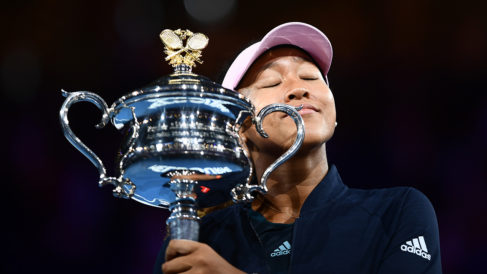This week was the week proud new parents, the Duke and Duchess of Sussex have presented their new-born son Archie Harrison Mountbatten-Windsor to the world. Also the week BBC Radio host Danny Baker was fired Thursday after tweeting out a cartoon the day before representing the new royal baby as a chimpanzee in a suit, with the caption: “Royal baby leaves the hospital.”
Baker, an award-winning host as well as a comedy writer and journalist, initially deleted the tweet and apologized for its contents.
“Sorry my gag pic of the little fella in the posh outfit has whipped some up,” he tweeted first. “Never occurred to me because, well, mind not diseased. Soon as those good enough to point out it’s possible connotations got in touch, down it came. And that’s it.”
As the backlash kicked off on social media, in a desperate attempt to make amends, Baker tweeted,
“Once again. Sincere apologies for the stupid unthinking gag pic earlier. Was supposed to be joke about Royals vs circus animals in posh clothes but interpreted as about monkeys & race, so rightly deleted. Royal watching not my forte. Also, guessing it was my turn in the barrel.”
Then he tried yet again, relaying an exchange at his door with a Daily Mail reporter. Baker’s irritation was showing as the reporter allegedly asked him, “Do you think black people look like monkeys?”
“This was a serious error of judgment and goes against the values we as a station aim to embody,” the BBC said in a statement Thursday, as the broadcaster decided to let the presenter go. “Danny’s a brilliant broadcaster but will no longer be presenting a weekly show with us.”
Shortly after he had been fired, Baker turned on his former employer for making the decision to let him go.
“The call to fire me from @bbc5live was a masterclass of pompous faux-gravity,” he tweeted Thursday. “Took a tone that said I actually meant that ridiculous tweet and the BBC must uphold blah blah blah. Literally threw me under the bus. Could hear the suits knees knocking.”
In an LBC interview after he was fired, Baker told James O’Brien: “It was put up there as a joke about class. It was supposed to be preposterous about toffs leaving. The idea that there was any racial basis for it … it came out of my own ignorance.
“I curdled that I thought anyone could have thought that was the intent behind that photo.”
A whole 24 hours after the radio host shared the offensive post the backlash continued with many criticising Baker, including ITV News anchor Charlene White who said, “To claim ‘ignorance’, and give a half-hearted apology – again full of jokey ‘banter’ – despite people highlighting just how clearly offensive it is, is also unacceptable. That’s not the world we live in now. Those who live in privilege must be held to account” and writer and broadcaster Afua Hirsch who tweeted: “Not only does Danny Baker post an image comparing a baby w African heritage to an ape, but he has the audacity to say problem is that those of us who point out how racist it is have ‘diseased minds’.”
Hirsch’s comment right here sums it all up For those still wondering what the brouhaha is all about – and there are indeed many of them still pondering all over Twitter and Facebook. One such today came across Mr O’s rant on Facebook and ventured to comment, “Pretty sure he meant it as ‘the kid is gonna become another royal monkey being controlled and pranced around by higher ups without proper freedom’ rather than anything racial. Completely unfair to fire him based on his post. From the statement also he didn’t mean it as some people understood it.”
What is perhaps equally as troubling as, if not more so than, Baker’s original tweet is the defence he offers for his actions, which is echoed by those who see no wrongdoing in Baker’s behaviour. And it can be summed up in two words: white privilege.
No need pointing out Baker’s race and privilege. Needless to add, the aforementioned clueless commentator is another member of the white privilege club where the colour of one’s skin and the privileges that naturally come with it make one blind to connotations and in fact blatant codes of racism, such as depicting the biracial offspring of the Duke and Duchess as a chimp.
White privilege is also the same disease that caused similar blindness in 2018 when H&M outraged its black audience with their ill-advised ‘coolest monkey in the jungle’ hoody, incidentally worn by a black kid.
Also the same disease which made Heineken and its supporters equally deaf to the racial undertones of the tagline ‘sometimes lighter is better’ the brand used to market its light beer.
There are countless examples from the world of modern media and advertising to show just how rampant white privilege still is and how so many are blind and deaf to the connotations of certain imagery and words which struck a chord with a racially diverse audience. But to suffer from the white privilege disease and then accuse those offended of having ‘diseased minds’? So glad karma served up real fast in the case of Danny Baker.
Source: Guardian

